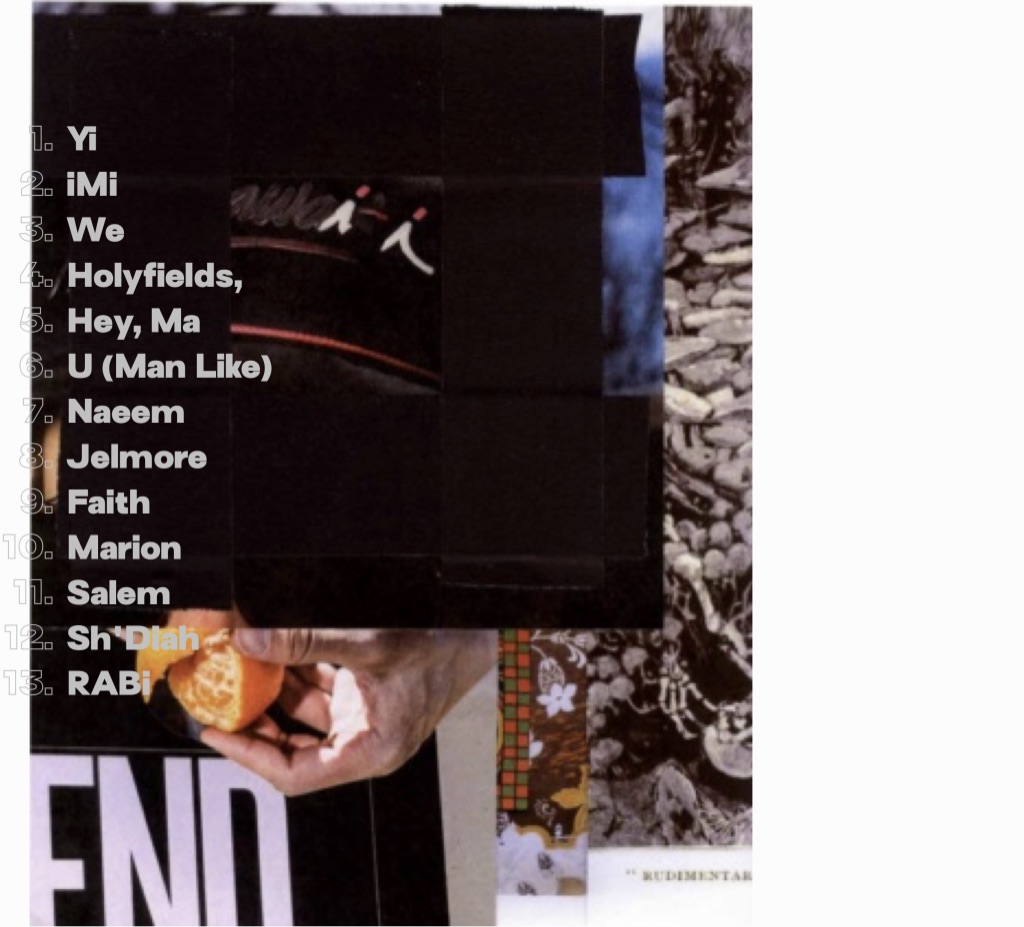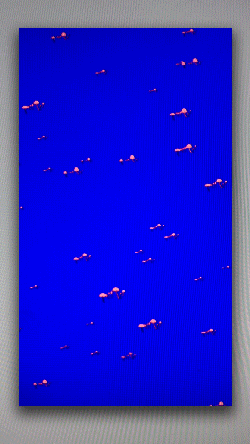Bon Iver - i,i
Good Winter has come around once again.
Additional Editing by Anouska Liat
The name ‘Bon Iver’ has become a glowing critical darling in the indie market, known for bringing a great deal more to a folk song than just a hand-plucked guitar and a heaping of hipster-hugging, beanie-hat melancholia. Rather, Justin Vernon and company write pieces that are as big a sensation as a best-seller, but still as intimate as a diary entry. And i,i is no different.
More than their fourth studio album, it marks the end of a long-standing cycle that only seems to have been revealed with the release of this record. Beginning with the bleak midwinter of For Emma, Forever Ago, Iver broadened their scope to a mostly-exceptional outcome in the blissful spring of their self-titled effort. Twisting their tale further, the group’s third endeavour, 22, A Million, is not a traditional ‘summer’ listen, more of a foray into dark folktronica, accruing mixed results. Personally, it feels more autumnal than i,i, which sounds in touch with the wide-eyed summer months. Nevertheless, none of this perceived connection matters if Bon Iver doesn’t give something that matches the rest of their discography in ambition, and if the obscure phrases and made-up words tucked in the lyrics are anything to go by, they turn up afresh with improvements.
Galaxies away from the then-solo For Emma, frontman Justin Vernon has not only since expanded into a band but is now hedging together a band camp of musicians. Though he is still shepherding the project, he has always been quick to deflect praise to other members of his band and outer creative community, in the process producing increasingly sprawling, collage-like sonics across LPs that are emblematic of how their embrace has gotten wider. Nominally hinting at collaboration, the title i,i could be interpreted as an abbreviation for i and i, plus its cover art is filled with nods to the music, with colours and textures that fall over one another. Bon Iver have always had a keen interest in the visual aspect of their work, releasing unique lyric videos for every track that braid together a vast library of scrapbook-like assets ranging from high-gloss clips of art to literal clip art, and this wild use of elements reflects back on the music itself.
i,i opens its doors to arrive at ‘Yi’ and ‘iMi’, the former being a 30-second prelude of sorts, and both share a series of synth swells that transform from greyscale in the intro, to full colour on ‘iMi’. Featuring James Blake and Poliça, the track scales back just before the verse to simple wineglass tones. Contrary to initial beliefs, the first voice we hear is not actually James Blake, but one of his signature production tricks does lend a hand as Mike Noyce’s vocals are as sped-up and warbled as on Blake’s own ‘Don’t Miss It’.
Justin had been in a troubled area for a long time before 22, A Million and even a year into that era, forcing him to cancel further touring. Now, he sings “but on a bright fall morning, I’m with it” in his trademark falsetto to signal his growth beyond that low point. The slow march of the chorus is spectacular, with a carnival of polychromatic sounds glimmering out of the speakers. It perfectly exhibits the group’s mastery of music maximalism, and combing through so many moving parts is like taking a machete to the jungle. Amongst the grand hits of string, a cloud of white noise and vocal jumblings amplify the full-bodied mix. But peeking through the chorus is a cute vocal ascent from Camilla Staveley-Taylor (of folk-rock trio The Staves), who momentarily breaks out singing “I am, I am, I am” - in the track’s revelatory context, it’s one of the best fragments of joy in Iver’s entire discography.
Far later in the tracklist lies the white-robbed affair titled ‘Faith’, which takes a far different approach to reach its high point. Refreshingly, Justin gives it time to build itself upon its beautiful atmosphere, so that they can hit upon several ideas of faith - faith in a higher power, faith in his peers, and faith in the band’s direction. He even questions his faith for a brief second, asking “am I dependent on what I’m defending?”, a vulnerable moment of self-awareness pollinated with an angelic choir and striding strings that cavort in the headspace. Plus, those amazing multi-tracked vocal harmonies of his bound over the explosive drums and shots of harsh distortion, rounding out a real album highlight.
The centrepiece of the project diverts focus away from juggling an orchestra’s worth of instruments, and treats the record’s best crop of songwriting feats as sacrosanct. As the more popular of the two lead singles, ‘Hey, Ma’ is the least exemplary of the rest of i,i, but is nonetheless its standout tune. In another dramatic change of face, the instrumental backing is scarce enough to allow the listener time to breathe without having to wade through the track to pull something out; it’s right there, bare and upfront. However, Vernon translates that lost production horsepower into a commanding performance, with a beckoning volume in the verses and a sweet chorus line where he reaches into his upper register before coming back down, in a small piece of bliss. Despite this, some nagging points should be noted. The snare drum that kicks in after the first chorus, which would have given the second verse and hook much more punch and flavour if made more prevalent. As well as this, the dull ending is a bitter let-down, and unfortunately occurs more than once throughout the project. Still, ‘Hey, Ma’ is already a staple Bon Iver track.
In the wake of this moment comes two piano ballads, ‘U (Man Like)’ and ‘Naeem’. Each feature Justin delivering emotive language with high doses of melodrama; the first sneaks in cameos from Bruce Hornsby and Moses Sumney to join in addressing the state of poverty and homelessness in the US. Meanwhile the second is more developed structurally, breaking down with rolling drums and a soft crescendo after the second chorus, spelling one of the most dramatic pieces on i,i. Together they close the first act on the record with compositions that have the core nutritional values of a Bon Iver song in spite of the, at-times, cumbersome key-playing on ‘Man Like’.
While Bon Iver’s three albums as a band do include some of the most time-bending climaxes of the decade, they carry along transitionary tracks that can often feel undercooked and, sadly, i,i does not escape this. ‘Jelmore’ is its weakest contribution, mainly because of the almost broken electronics that simply doesn’t fit in a cohesive with the vocal lines. Having such a purposefully bandy element in the track is no oddity for the band - on 22, A Million, they tweaked and tuned the surrounding parts of ‘10 d E A T h b R E a s T ⚄ ⚄’ to successfully incorporate that swampy, overblown drum pattern. Here, however, it’s as if the synths and vocals are actively fighting against one another, with neither backing down. Beyond this, ‘Jelmore’ is a short idea that is not fleshed out enough to support itself, and this hurts the album in other areas too.
Tracks like ‘Holyfields’ present thoughtful sonic concepts such as its electronics and kick drums, which ripple wildly à la ‘Hinnom, TX’, but sometimes the band are expediting their gamut of ideas so quickly that they don’t have enough time to assemble themselves in the listener’s head. This lack of waxing and listener-friendly song structure results in Bon Iver’s biggest missed opportunity - ‘We’. Darkening the water after the crystalline opener, it’s a pensive cut that sees baritone guitars and menacing piano chords dwelling underneath part-production from hip-hop producer Wheezy, of all people. He also lends a hand on ‘iMi’, but his touch is more defined on this one, as his trap rhythms are translated into more man-made and wooden percussion. Moreover, the band’s adoption of hip-hop goes past grabbing one of its best producers, tossing in ad-libs and sound effects in places that a typical trap-rapper would also add vocal colour in. In the face of those brilliant subtle details, though, is the underlying feeling of disenchantment as the song shimmers out, from receiving something noticeably half-baked. The group are definitely striving to get to a high point, perhaps the midpoint where the horns and vocals clamber over each other, but that mountaintop is not reached for long before being killed off - more time should have been given to let us swim in this section a little more.
Fading into the twilight minutes of the record, the closing triplet of tracks are free of non-sequiturs, instead providing disarming nocturnes. Lullaby electronics rippling on the surface (‘Salem’) and burning sax solos (‘Sh’Diah’) sprinkle some aural treats in an illuminating send-off for one of Bon Iver’s stronger efforts. In one area, i,i is an exercise in sheer accretion, packing a flurry of instruments that melt into one another. Other places on the project begin and end quietly like a series of musical swells that escalate lusciously in the chewy centre. Many critics and fans explain their music as being “cinematic” or “epic”, an apt pair of descriptors for a mercurial journey of Spartan proportions, all shot in delectable film grain.






